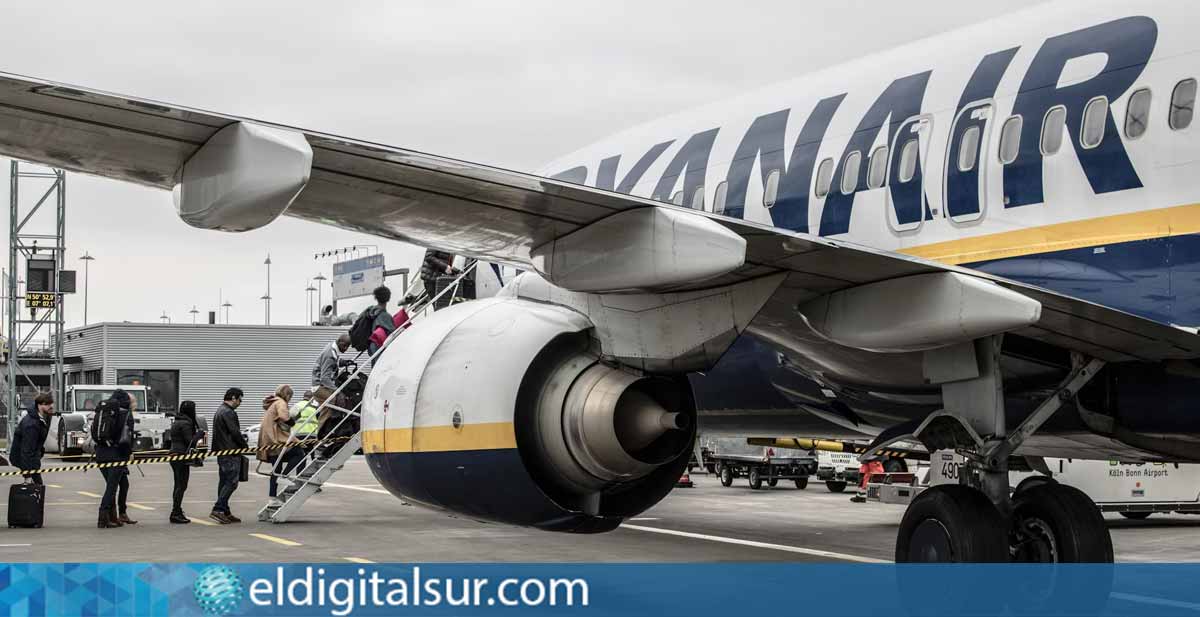Ryanair, Europe’s largest low-cost airline, has announced a significant reduction in its flight capacity in Spain. According to the company, this measure is in response to the “excessive and uncompetitive airport charges” imposed by Aena. The changes, which will primarily affect regional airports and the Canary Islands, will result in the loss of one million seats during the winter season and two million annually.
Closures and Reductions at Regional Airports
Ryanair’s decisions represent a severe blow to connectivity in various Spanish regions. Among the most notable measures, the airline will close its base in Santiago de Compostela, a decision comprising a lost investment of $200 million in Galicia. From January 2026, all flights to Vigo will be suspended, and the bases in Valladolid and Jerez will remain closed during the winter of 2025.
In addition to these closures, capacity will be reduced at other key airports:
• Zaragoza: -45%
• Santander: -38%
• Asturias: -16%
• Vitoria: -2%
In the Canary Islands, the capacity reduction will be -10%, affecting airports in Lanzarote, Fuerteventura, and Gran Canaria, as well as the suspension of flights to the Tenerife Norte – Ciudad de La Laguna Airport starting this winter.
Accusations Against Aena and the Spanish Government
At a press conference, Ryanair’s Chief Executive Officer, Eddie Wilson, defended the decision as an inevitable response to Aena’s pricing policy. Wilson noted that the airport operator’s decision to increase fees by 6.62% next year is evidence that it “has no interest in developing traffic in regional airports”. According to him, Aena is focused on generating profits from larger airports, rendering regions “irremediably uncompetitive”.
Wilson also strongly criticised the Spanish Government, accusing it of pursuing an “anti-tourism” policy and “failing regional Spain”. He asserted that Ryanair’s cuts will lead to a “loss of investment, connectivity, tourism, and jobs” in a regional Spain where airports are nearly 70% empty.
Meanwhile, other countries such as Italy, Morocco, Croatia, and Albania are lowering access costs to boost traffic, making them more attractive destinations for the airline’s investment.
Flight Redirects and Future in Spain
As a result of these changes, Ryanair will redirect two million annual seats to more competitive countries. Wilson stated that the company has an order for 300 new aircraft that will be allocated to airports where fees are lower and growth is viable.
Despite the cuts, the airline confirmed it will maintain its commitment and continue growth in larger airports such as Málaga and Alicante, where prices are more competitive. However, Wilson warned that many regional airports could close in the next 5 to 10 years if there is no change in tariff policy.
“Ryanair remains committed to Spain, but we cannot justify continued investment in airports where growth is hindered by excessive and uncompetitive fees,” concluded Wilson. The airline has once again urged the CNMC and the Spanish Government to reject the fee increases to protect connectivity and jobs in the regions.
Related News:
Aena Attacks Ryanair for its “Dishonesty” and “Blackmail”














